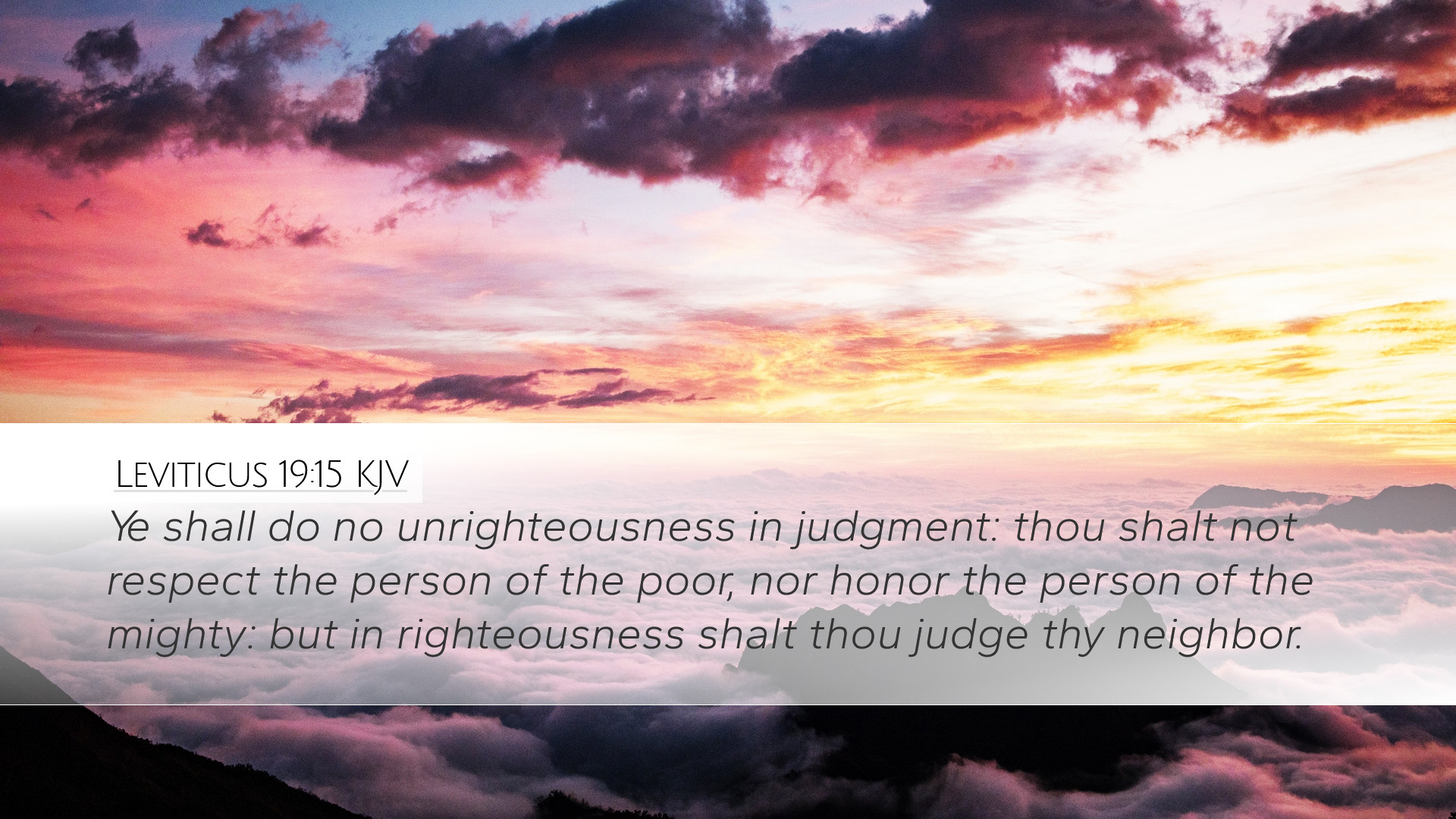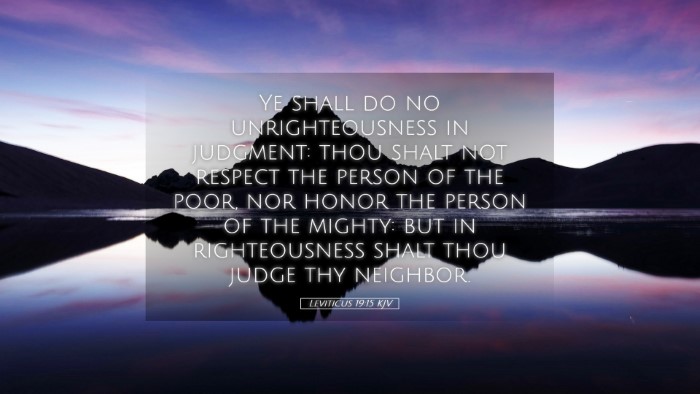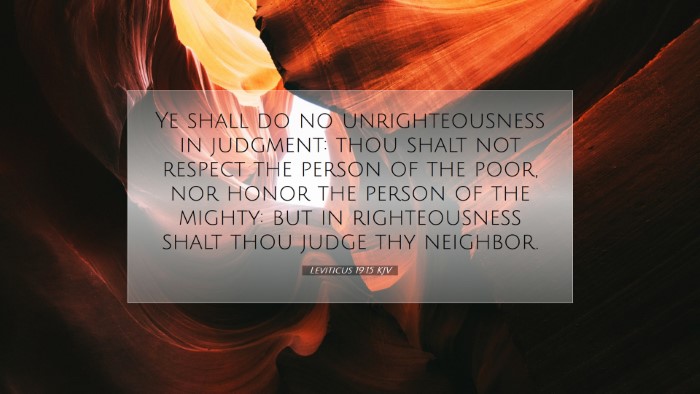Commentary on Leviticus 19:15
Verse: "Ye shall do no unrighteousness in judgment: thou shalt not respect the person of the poor, nor honor the person of the mighty: but in righteousness shalt thou judge thy neighbor." (Leviticus 19:15, KJV)
Introduction
This verse from Leviticus imparts vital ethical principles regarding justice and integrity, emphasizing the need for fairness in judgment and the avoidance of bias. It serves as a crucial guideline for leaders and individuals alike, urging them to uphold righteousness above partiality, regardless of societal status.
Exegesis and Theological Insights
Leviticus 19:15 establishes foundational insights into the essence of justice from a biblical perspective. The call for righteousness in judgment and the admonition against favoritism highlights a central biblical theme concerning ethical behavior.
Matthew Henry's Commentary
Henry elucidates that this command is directed towards appointed judges, urging them to be impartial. He writes, "This is the law of equity: **Do no unrighteousness in judgment**. Judgments must be made not only with equality but with integrity. The principle of justice must be upheld, regardless of the standing of the individuals involved." He emphasizes the notion that both the poor and the mighty are to be treated with equal impartiality.
Albert Barnes' Perspective
Barnes provides practical insights, noting the societal implications of these commandments. He affirms, "The rich and the poor should be held to the same standards in court—this ensures the protection of the community from tyranny and favoritism." He interprets the verse as an essential safeguard for societal balance, underscoring that fairness in judgment is paramount to maintaining social order and justice.
Adam Clarke's Analysis
Clarke approaches this verse by exploring the inherent human biases that can lead to injustice. He declares, "A judge who shows preferential treatment to either the rich or the poor fails to reflect divine justice, which is impartial. This command is a reflection of God's character, who judges without favoritism." He ties this imperative back to the overarching holiness of God which permeates the Law of Moses.
Practical Applications
For pastors, students, and theologians, the implications of Leviticus 19:15 extend beyond the courtroom and into the congregational setting, personal interactions, and societal engagement.
- Pastoral Application: Pastors must model impartiality in their ministry, ensuring that all congregants feel valued and treated justly, irrespective of their socioeconomic status or background.
- Academic Application: Students and scholars should engage with the text critically, exploring how these principles apply to modern judicial systems and ethics, while also considering historical contexts.
- Theological Reflection: The command reveals the character of God, providing a basis for discussions on divine justice, mercy, and the call for holiness that extends to followers today.
Conclusion
Leviticus 19:15 stands as a profound declaration that resonates through the ages, calling individuals and societies to uphold justice, impartiality, and the dignity of all persons. It challenges all believers to embody these principles in their lives, reflecting the righteous character of God in every judgement and interaction.


